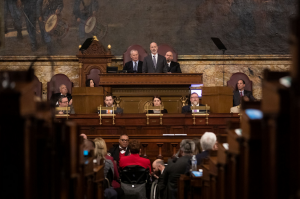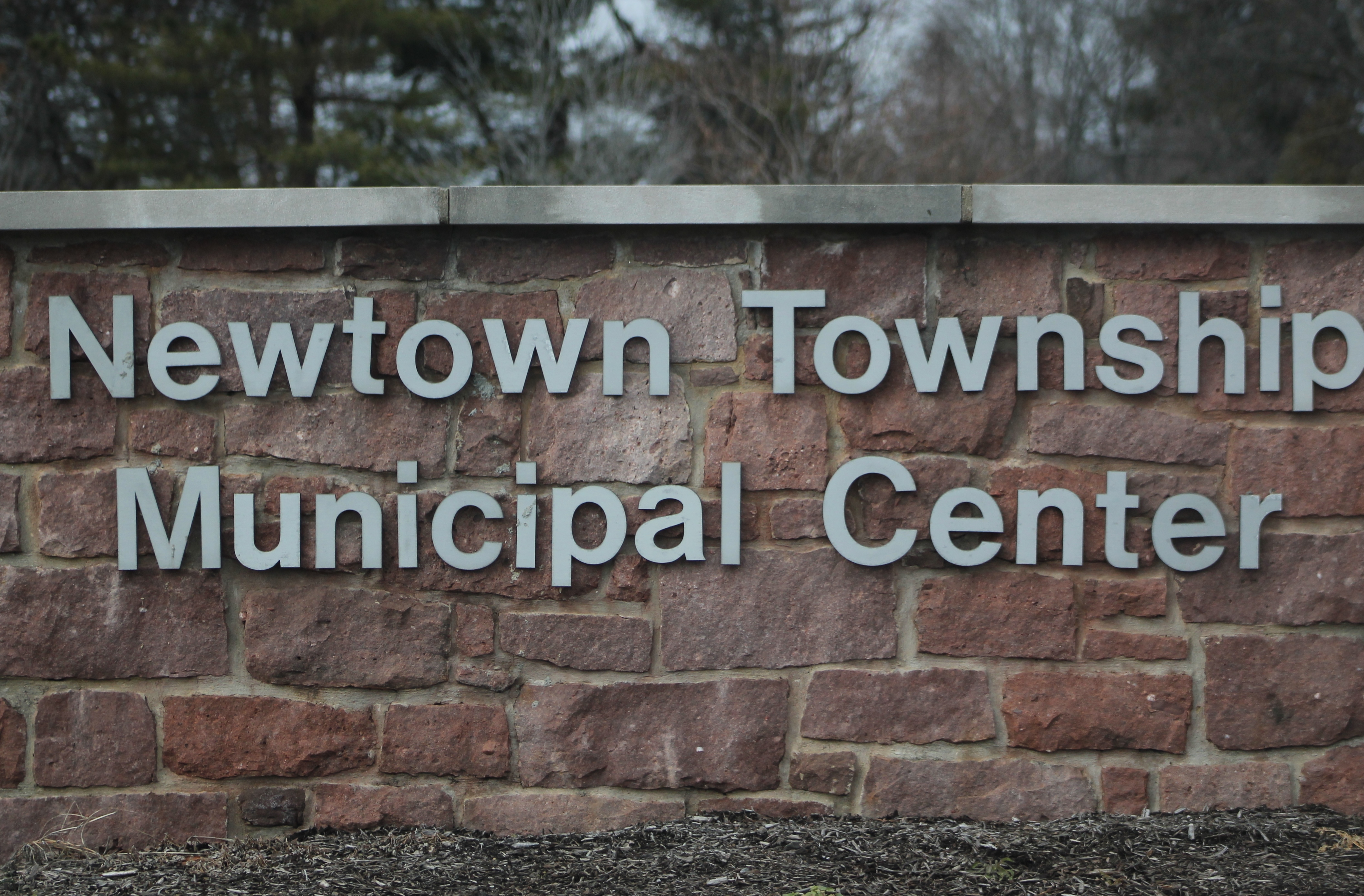By Dave Lemery | Watchdog.org

Several days after pulling his perennial severance tax proposal out of the budget and spinning it off into a standalone, $4.5 billion infrastructure plan, Pennsylvania Gov. Tom Wolf delivered a budget address Tuesday largely free of the kinds of big spending initiatives that have led him to butt heads with the Republican majorities in the state House and Senate.
Wolf, a Democrat from York County, kicked off the annual state budgeting process with a speech from the speaker’s lectern in the House of Representatives that promised the assembled lawmakers that he would not be asking for new revenue.
“This proposal asks for no new taxes,” Wolf said. “Not one dollar. Not one dime. Not one penny.”
Using existing funding sources, the governor proposed a number of modest ventures designed to improve the workforce readiness of the state, improve public education and help veterans looking for work.
Wolf devoted the largest portion of his speech to the proposed “Statewide Workforce, Education and Accountability Program.” Invoking the example of Amazon’s decision not to locate its new headquarters in Pennsylvania, the governor vowed to connect business, education and government resources to make it easier for companies to find the workers they need.
Republicans mostly responded positively to Wolf’s address, but said the state still had major issues with its tax and regulatory climate.
Another series of proposals all related to the public education system. Wolf proposed that the age at which students in Pennsylvania must attend school be lowered to 6, earning an approving nod and applause from Republican House Speaker Mike Turzai, who was seated behind the governor alongside Lt. Gov. John Fetterman.
Two subsequent proposals that didn’t get such obvious feedback from Turzai was one to implement universal, full-day kindergarten throughout the state and a plan to make the minimum teacher salary in Pennsylvania $45,000 a year.
“This is a fully funded mandate,” Wolf said of the teacher pay proposal, noting that his budget would set aside funds for school districts where pay raises would be required to meet that standard.
The governor seeks to address the daunting cost of higher education in Pennsylvania via a grant program for community college students who graduate with an associate’s degree or certificate and remain within the state to work. And he promised to fund more training programs for returning veterans, offering that the money would also be transferable to the children of veterans.
“It’s a GI Bill for Pennsylvania,” Wolf said.
Touting the recently passed Clean Slate law that made it easier for nonviolent former offenders to have their criminal history cleared, Wolf said that the state needs to go further to make re-entry into society easier for those who have reformed, perhaps signaling support for the package of reforms known as “Justice Reinvestment Initiative 2.”
The governor’s budget proposal will be scrutinized on an agency-by-agency basis over the coming weeks in a series of hearings held by the House and Senate Appropriations Committees. The Legislature will aim to have a completed budget passed by the end of June so that it can go into effect July 1 for the 2019-20 fiscal year.








